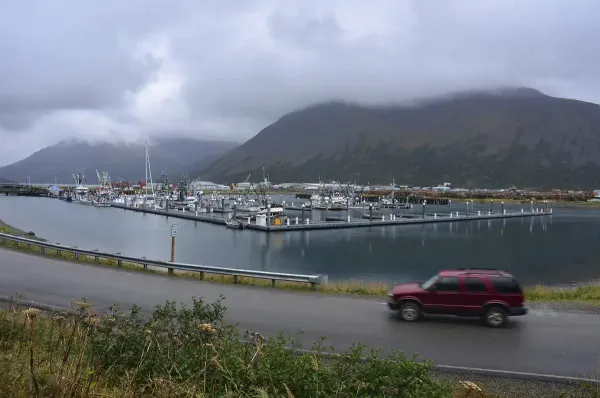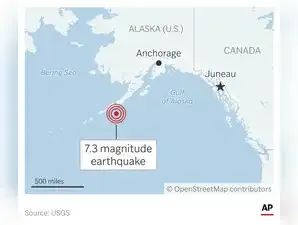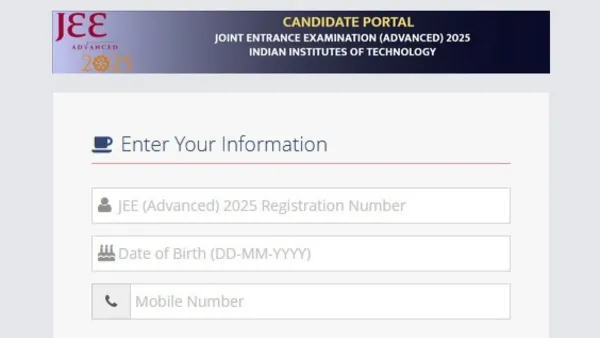A powerful 7.3 magnitude earthquake hit near Sand Point, Alaska, on Wednesday. The US Geological Survey (USGS) confirmed the quake struck at 12:37 p.m. local time. It prompted an immediate tsunami warning, later downgraded to an advisory by the National Tsunami Warning Center.
Earthquake Strikes Near Sand Point
The earthquake occurred 54 miles south of Sand Point, located on Popof Island, approximately 600 miles southwest of Anchorage. It originated 12 miles below the Pacific Ocean surface. The tremor caused buildings to shake, but early reports indicated no major damage.
Tsunami Warning
Shortly after the earthquake, the National Tsunami Warning Center issued a tsunami warning. The alert extended from Kennedy Entrance to Unimak Pass along the Pacific Coast. Cities in the warning included Sand Point, Kodiak, and Cold Bay.
Also Read: Good Trouble Lives On Protests: Who is John Lewis? See what is it, date, demands, number of demonstrations, turnout, virtual events
Areas under Tsunami Advisory Zone
The advisory zone stretched from South Alaska to the Alaska Peninsula. Affected areas included:
Anchorage’s emergency management confirmed no immediate threat to the city. No advisories were issued for Turnagain Arm or further north.
What is a Tsunami?
A tsunami is a series of waves caused by large underwater disturbances, often following earthquakes. The first wave is not always the largest. Currents can be dangerous in bays, harbors, and beaches.
Timing of Expected Waves
These projections were based on official modeling from the Tsunami Warning Center.
Tsunami Warning Downgraded to Advisory
By 1:50 p.m., the tsunami warning was downgraded to an advisory. The advisory indicated the waves could still be dangerous, especially in or near water. There were no widespread flooding expectations.
Also Read: Good Trouble Lives On Protests Near Me: Which areas to avoid traffic closures? See cities, locations and timings of protests in US
Sirens and Alerts Across Cities
Sirens sounded in Kodiak, advising residents to move to higher ground. Police confirmed no damage in the area. In Homer, the police department advised residents to stay alert and move uphill. Later, the Coast Guard and state homeland security issued an “all clear” for Homer.

On-the-Ground Accounts
Debi Schmidt, Sand Point’s city administrator, said the earthquake was the largest she had experienced. She described shaking and items falling but confirmed there was no visible damage.
Michael Ashley, of Cold Bay Lodge, reported shaking but said it was not intense. He noted that Cold Bay’s elevation at 100 feet above sea level reduced local concern.
Response from Warning Center
Dave Snider, tsunami warning coordinator, said the shallow depth of the quake lowered the chance of a major tsunami. However, he warned people to stay off beaches and away from the shoreline during the advisory.
FAQs
Is there still a tsunami warning for Alaska?
No, the tsunami warning has been downgraded to an advisory. Authorities advise people to stay away from the coast.
Which areas were affected by the Alaska earthquake and advisory?
The affected areas included Sand Point, Cold Bay, Kodiak, Homer, and regions between Kennedy Entrance and Unimak Pass.
Earthquake Strikes Near Sand Point
The earthquake occurred 54 miles south of Sand Point, located on Popof Island, approximately 600 miles southwest of Anchorage. It originated 12 miles below the Pacific Ocean surface. The tremor caused buildings to shake, but early reports indicated no major damage.Tsunami Warning
Shortly after the earthquake, the National Tsunami Warning Center issued a tsunami warning. The alert extended from Kennedy Entrance to Unimak Pass along the Pacific Coast. Cities in the warning included Sand Point, Kodiak, and Cold Bay.Also Read: Good Trouble Lives On Protests: Who is John Lewis? See what is it, date, demands, number of demonstrations, turnout, virtual events
Areas under Tsunami Advisory Zone
The advisory zone stretched from South Alaska to the Alaska Peninsula. Affected areas included:- Sand Point
- Cold Bay
- Kodiak
- Kennedy Entrance
- Unimak Pass
- Southwest coastlines through Cook Inlet
- Homer area
Anchorage’s emergency management confirmed no immediate threat to the city. No advisories were issued for Turnagain Arm or further north.
What is a Tsunami?
A tsunami is a series of waves caused by large underwater disturbances, often following earthquakes. The first wave is not always the largest. Currents can be dangerous in bays, harbors, and beaches.Timing of Expected Waves
- Sand Point: 1:30 p.m. local time
- Cold Bay: 2:25 p.m. local time
- Kodiak: 2:40 p.m. local time
These projections were based on official modeling from the Tsunami Warning Center.
Tsunami Warning Downgraded to Advisory
By 1:50 p.m., the tsunami warning was downgraded to an advisory. The advisory indicated the waves could still be dangerous, especially in or near water. There were no widespread flooding expectations.Also Read: Good Trouble Lives On Protests Near Me: Which areas to avoid traffic closures? See cities, locations and timings of protests in US
Sirens and Alerts Across Cities
Sirens sounded in Kodiak, advising residents to move to higher ground. Police confirmed no damage in the area. In Homer, the police department advised residents to stay alert and move uphill. Later, the Coast Guard and state homeland security issued an “all clear” for Homer.
A powerful 7.3 magnitude earthquake hit near Sand Point, Alaska, on Wednesday. A driver passes the small boat harbor in King Cove, Alaska, Sept. 23, 2013. FILE (James Brooks/Kodiak Daily Mirror via AP)
On-the-Ground Accounts
Debi Schmidt, Sand Point’s city administrator, said the earthquake was the largest she had experienced. She described shaking and items falling but confirmed there was no visible damage.Michael Ashley, of Cold Bay Lodge, reported shaking but said it was not intense. He noted that Cold Bay’s elevation at 100 feet above sea level reduced local concern.
Response from Warning Center
Dave Snider, tsunami warning coordinator, said the shallow depth of the quake lowered the chance of a major tsunami. However, he warned people to stay off beaches and away from the shoreline during the advisory.FAQs
Is there still a tsunami warning for Alaska?
No, the tsunami warning has been downgraded to an advisory. Authorities advise people to stay away from the coast.
Which areas were affected by the Alaska earthquake and advisory?
The affected areas included Sand Point, Cold Bay, Kodiak, Homer, and regions between Kennedy Entrance and Unimak Pass.








